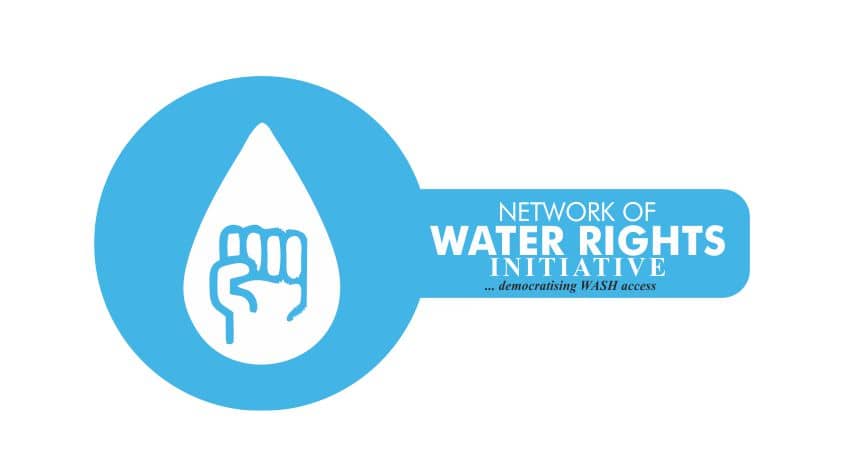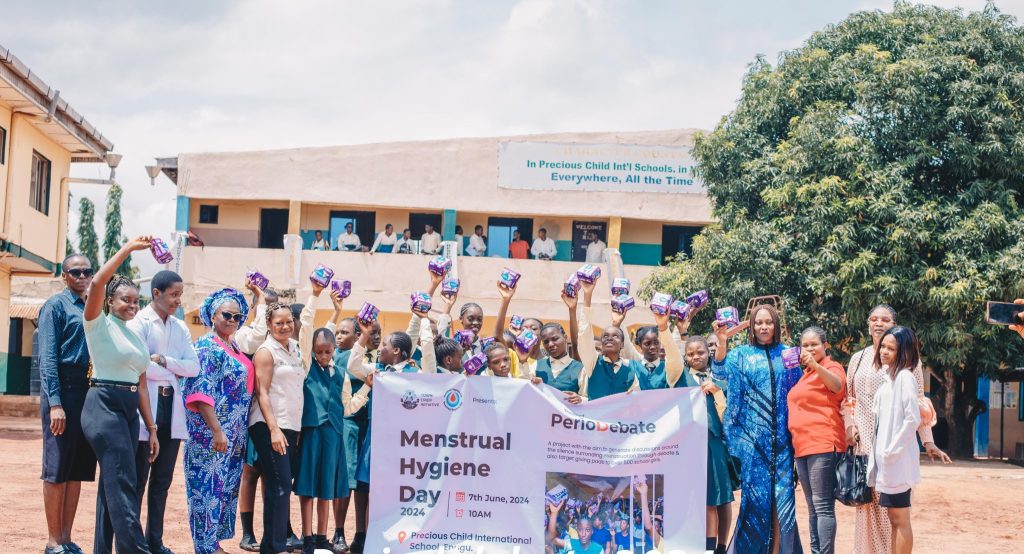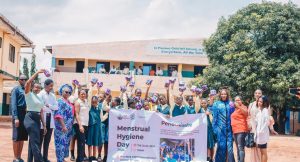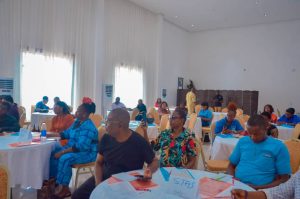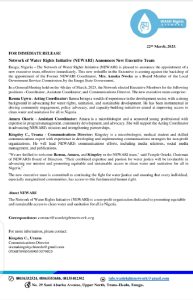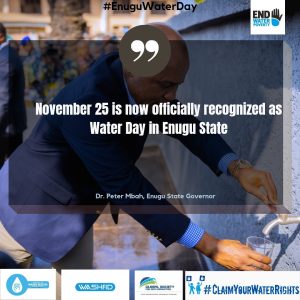Every May 28, the world comes together to recognize Menstrual Hygiene Day, a day dedicated to breaking the silence around menstruation, challenging taboos, and promoting access to proper menstrual hygiene for all who menstruate. The theme for 2025, “Together for a #PeriodFriendlyWorld,” couldn’t be more timely. It calls on individuals, communities, organizations, and governments to create an inclusive world where menstruation is not a source of shame or limitation.
At NEWARI, our work around water, sanitation, and hygiene (WASH) goes beyond advocacy and infrastructure. It’s about dignity. It’s about equity. And it’s about empowering women and girls, especially those in underserved communities, to thrive without being held back by something as natural and normal as their menstrual cycle.
Let’s be honest; menstruation is a part of life for billions of people. Yet, even in 2025, many still face significant barriers when it comes to managing their periods safely. These challenges range from limited access to affordable menstrual products to a lack of clean water and private sanitation facilities. For many girls and women, especially those in low-income or rural communities, this reality often means staying home from school, missing work, or feeling ashamed simply for being human.
Poor menstrual hygiene leads to serious health risks, including infections and long-term reproductive issues. It equally deepens existing inequalities by limiting access to education and economic opportunities. According to UNICEF, at least 500 million women and girls globally lack adequate facilities for menstrual hygiene management. This isn’t just a sanitation issue but a public health crisis and a human rights concern.
As we commemorate this year’s Menstrual Hygiene Day, NEWARI believes that creating a #PeriodFriendlyWorld starts with access: access to clean water, functional toilets, safe spaces, and accurate information. This is why our WASH programs are usually intentionally designed to not only improve general public health but to specifically address the needs of women and girls during menstruation.
Here’s how we’re doing that:
- Community Education and Awareness
We know that education changes everything. That’s why we run community-focused menstrual hygiene education sessions that aim to challenge harmful myths, encourage open conversations, and empower both men and women to understand menstruation as a normal biological process, not a taboo. These sessions are conducted in schools, community centers, and through local advocacy campaigns.
- Improved Sanitation Infrastructure
Our projects prioritize the construction and renovation of sanitation facilities in schools, public spaces, and healthcare centers. We make sure these facilities are girl- and woman-friendly, offering privacy, running water, waste bins, and a dignified space to manage menstruation without fear or embarrassment.
- Access to Menstrual Products
Whether it’s through partnerships with local producers of reusable sanitary pads or our member organizations such as Town Crier Initiative, we help ensure that period products reach those who need them most. No one should have to choose between buying food and buying sanitary pads.
- Youth Engagement
Young people are at the center of our menstrual hygiene programs. Our network consists of mostly youth-led organizations committed to promoting proper menstruation through strategic programming. Whether it is training peer educators or engaging school clubs, we are creating safe spaces for adolescents to learn about menstrual health and support each other.
The Bigger Picture: From Hygiene to Dignity
Menstrual hygiene is not just about staying clean; it’s also about living with dignity. It’s about ensuring that a girl doesn’t have to miss school because there’s no toilet at her school. It’s about making sure a working woman doesn’t suffer discomfort or shame because her workplace doesn’t provide adequate facilities. It’s about saying: you matter, your body matters, and your experience matters.
We believe that a #PeriodFriendlyWorld is not only possible, it’s necessary. And it requires all of us, including educators, health workers, policymakers, parents, and communities.
What You Can Do
- Talk About It: Help normalize conversations around menstruation.
- Support Local Efforts: Whether through donations, volunteering, or amplifying campaigns, your voice and actions matter.
- Hold Leaders Accountable: Advocate for policies that prioritize menstrual health in schools, healthcare, and public planning.
Moving Forward
As we mark Menstrual Hygiene Day 2025, we’re reminded that change begins with commitment. At NEWARI, we remain committed to creating inclusive WASH systems that meet the needs of everyone, especially women and girls. Together, with your support and the power of collective action, we can truly build a world where menstruation is not a source of stigma but a symbol of strength.
